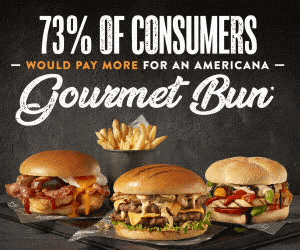Legal: 2024 round-up
This year brings a raft of new legislations, as well as trends and challenges the hospitality sector should prepare for. The experts from TLT highlight some of the main dates and changes operators need to be aware of.

Data protection
The Data Protection and Digital Information Bill is likely to receive Royal Assent in 2024, which could lead to a loosening of rules around data protection in low-risk situations – likely to be many of the uses hospitality businesses have for personal data.
The conclusion of the EU’s AI Act, and the publication of a UK AI Regulation Bill, mean that the use of AI by operators is likely to see increased regulation. While most regulatory obligations will fall on developers and sellers of AI systems, users such as out of home businesses will need to be confident any deployment of AI is compliant with the new laws.
Employment – Tipping and National Minimum Wage
Under a new law due to come into force in May 2024, employers will be required to share all tips, gratuities and service charges fairly with staff without deductions. Further guidance is expected to be published imminently.
From 1st April 2024, the National Minimum Wage for adults will increase from £10.42 to £11.44. We advise employers to adjust budgeted costs for the wage increase as soon as possible.
Changes in regulations
Martyn’s Law – a set of new laws being introduced to ensure stronger protection against terrorism in public places – is likely to be moved forward, but it is unlikely that it will come into force in 2024. Estimates for full implementation are expected in 2026/2027.
Carbon reduction transition planning: The Transition Plan Taskforce has published sector guidance that is currently voluntary but is expected to become a legal requirement for listed companies in 2024.
Real estate
Due to the recent changes to the MEES regulations requiring improvements in the energy efficiency of buildings, sustainability has become a critical consideration for large operators. In 2024, we expect to see growth in this area with the use of green drafting in leases.
With environmental issues in mind, landlords are seeking more control over how alterations are undertaken and the choice of materials used. In addition to landlord requirements, these changes are also, in part, being driven by customer demands, which have seen operators place higher value on sourcing local ingredients, reducing and recycling waste, and installing energy efficient plant and equipment.
Tech-driven concepts have emerged throughout 2023 and are expected to continue to grow in 2024. In everyday food and beverage concepts, tech is being increasingly used, such as chatbots on online booking systems. These have been reported to bring benefits to operators including savings in staff costs.
Q&A
Q. Could I lose my licence if a dog bites someone in my outlet?
A. The owner of the dog could be prosecuted of their dog bites someone in your outlet. You could also potentially be subject to a review of your premises licence subject to the circumstances of the incident. You should also report (to the police and the local authority) a dog that is out of control on your premises.
Q. When do pranks at work become bullying?
A. The line between a prank and bullying is extremely thin and can be crossed easily. When an intended prank becomes harmful and causes mental or physical harm to the person who is being pranked, then the prankster becomes a bully. Constantly criticising someone’s work, spreading malicious rumours, or putting them down in meeting are all examples of bullying. Employers have a legal duty to take reasonable steps to provide employees with a safe working environment.

















